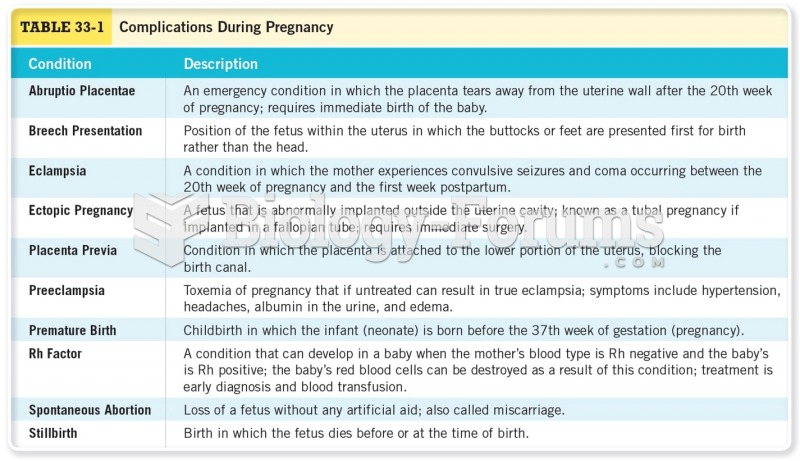Answer to Question 1
Health practitioners should be alert to the various complications that may accompany dysphagia. If the condition restricts food consumption, weight loss and malnutrition may develop. Individuals who cannot swallow liquids are at increased risk of dehydration. If aspiration occurs, it may cause choking, airway obstruction, or respiratory infections, including pneumonia. If a person lacks a normal cough reflex, aspiration is more difficult to diagnose and may go unnoticed. To compensate for swallowing difficulties, a person with dysphagia may need to consume foods and beverages that have been physically modified so that they are easier to swallow. Because a wide variety of defects can cause dysphagia, finding the best diet is often a challenge. Furthermore, a person's swallowing ability can fluctuate over time, so the dietary plan needs frequent reassessment. The National Dysphagia Diet, developed in 2002 by a panel of dietitians, speech and language therapists, and a food scientist, has helped to standardize the nutrition care of dysphagia patients. After the appropriate dietary level is selected, the diet must be adjusted to suit the person's swallowing abilities and tolerances. In many cases, the most appropriate foods may be determined only by trial and error. A consultation with a swallowing expert, such as a speech and language therapist, is often necessary.
Answer to Question 2
A







